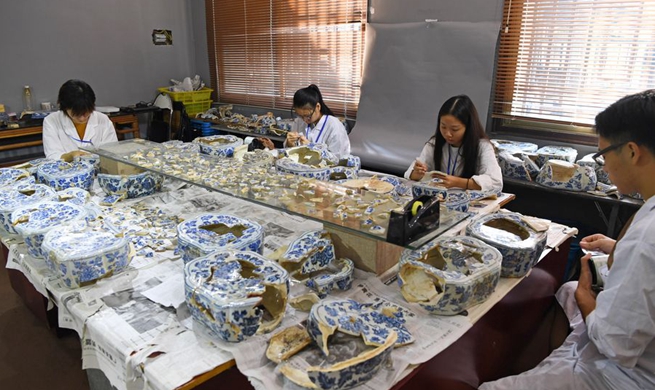HONG KONG, Oct. 11 (Xinhua) -- The research team of the Chinese University of Hong Kong has developed the world's first "AI-enabled Portable Quantitative Phase Microscope (QPM) for Blood Testing" that provides low-cost, fast and high efficiency blood testing technology, the university announced on Thursday.
According to the researchers, traditional blood testing needs to be handled by professionals and the results can take hours or even days. The instruments involved are bulky and expensive, which cannot be moved easily to different laboratories especially in remote areas. Besides, the morphology of the cells may be affected through staining or labeling, which in turn, may affect the test results.
The novel instrument developed by the university's research team weighs less than 5 kg and is a size similar to a briefcase that can be carried everywhere. The analysis process is completed by the computer automatically in a matter of minutes, with over 90 percent accuracy.
Zhou Renjie, a professor from the department of Biomedical Engineering of the university, said that in the past, researchers have failed to combine artificial intelligence with traditional blood testing methods, because it is difficult to distinguish cell images.
"Through our high-precision QPM technology, we can effectively combine it with the deep learning technology of artificial intelligence," Zhou said, adding that the new technology can automatically distinguish different cells from healthy volunteers' blood samples.
The team has completed the proof-of-concept study and is planning to get clinical certification by working with hospitals starting in 2020, expecting the commercialization of low-cost QPM after three to five years.
In the future, the team will develop other artificial intelligence models of this portable quantitative phase microscopy technique that can be used to distinguish red blood cells and all other blood cell types, hoping to detect cancer cells in peripheral blood eventually.

















